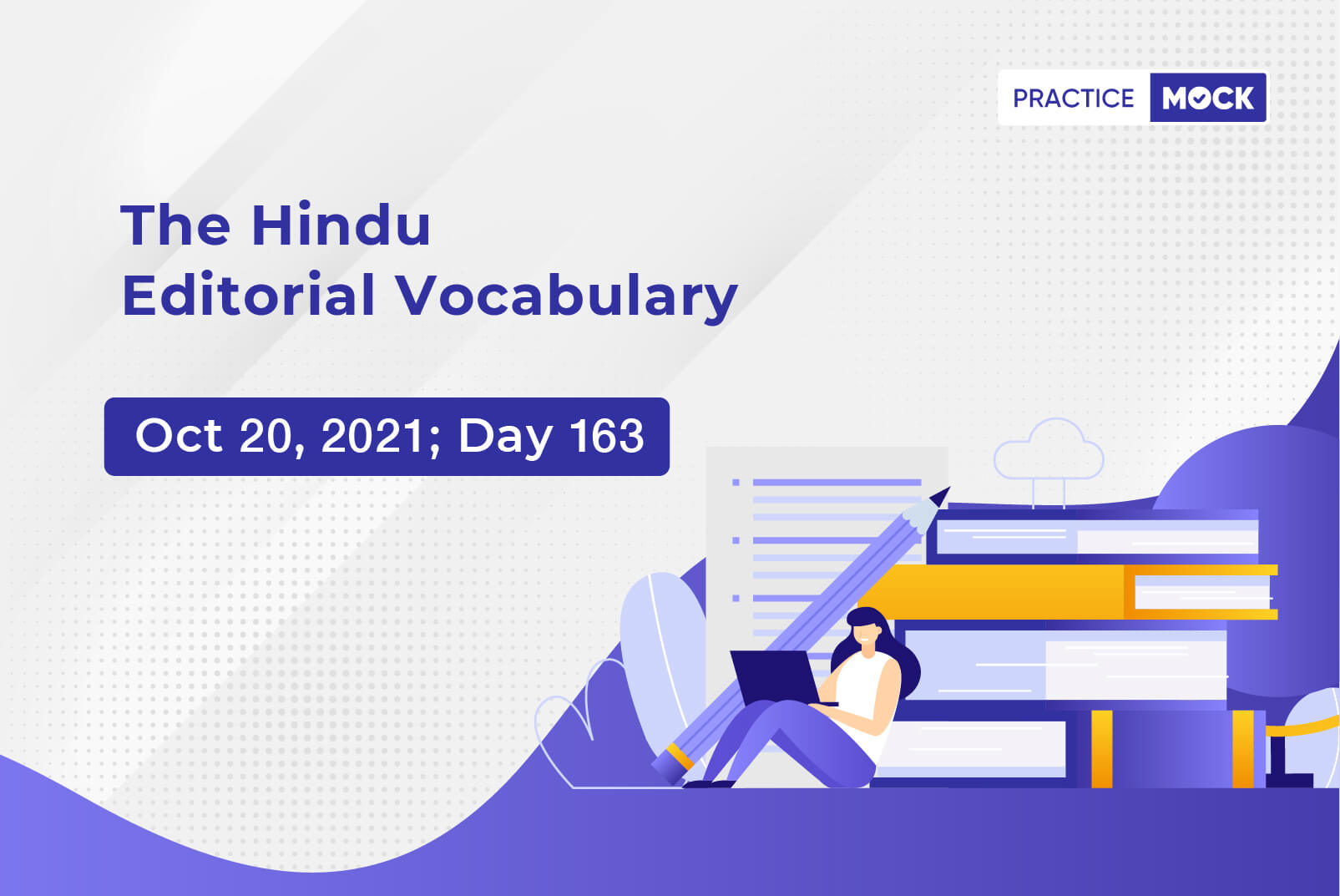| Difficult Word/ Phrase | Contextual Sense |
| Bloc | A group of countries in special alliance |
| Manifestation | A clear appearance |
| Counterpart | A person or thing having the same function or characteristics as another |
| Free trade agreement | a pact between two or more nations to reduce barriers to imports and exports among them |
| Transcend | Be greater in scope or size than some standard |
| Bilateralism | The property of being symmetrical about a vertical plane |
| Under the tutelage of | used to say who a person is taught something by |
| Footprint | range of operation (as of a service) |
| Pivot | the central or most important person or thing |
| Emanate | to come out from a source |

The other Quad: On virtual meet of Foreign Ministers of India, US, Israel and UAE
India must retain strong ties with Iran as it seeks partnership with the U.S.-Israel-UAE bloc (A group of countries in special alliance)
The virtual meet of the Foreign Ministers of India, the U.S., Israel and the UAE is a strong manifestation (A clear appearance) of the changes in West Asian geopolitics. If Israel and the UAE did not even have formal diplomatic relations a year ago, their growing economic and strategic cooperation is opening up opportunities for other powers, including India. External Affairs Minister S. Jaishankar, now in Israel, joined the quadrilateral conference after meeting his Israeli counterpart (A person or thing having the same function or characteristics as another) Yair Lapid, where they had agreed to launch talks for a free trade agreement (a pact between two or more nations to reduce barriers to imports and exports among them). The four-nation meeting also points to India’s strategic desire to adopt a regional foreign policy strategy towards West Asia, transcending (Be greater in scope or size than some standard) its bilateralism (The property of being symmetrical about a vertical plane). Over the years, India has built vibrant bilateral ties with all the countries in the grouping. It is a member of the Quad with the U.S., Australia and Japan, which have common concerns and shared interests on East Asia. Israel is one of India’s top defence suppliers. The UAE is vital for India’s energy security. The Gulf country, which hosts millions of Indian workers, has also shown interest to mediate between India and Pakistan.
In the past, there were three pillars to India’s West Asia policy — the Sunni Gulf monarchies, Israel and Iran. Now that the gulf between the Sunni kingdoms and Israel is being narrowed, especially after the Abraham Accords, the normalisation agreements signed between Israel and the UAE and Bahrain under the tutelage of (used to say who a person is taught something by) the Trump administration, India faces fewer challenges to a regionalist approach. Mr. Jaishankar has hinted that there would be more meetings among the four countries. While it is too early to speak of the strategic significance of such a grouping, there are areas where it can deepen its engagement — trade, energy ties, fighting climate change and enhancing maritime security. But India should also be mindful of the challenges in the region. The U.S. is clearly seeking to lessen its footprint (range of operation (as of a service)) here as part of its pivot (the central or most important person or thing) to East Asia to tackle China’s rise, which is redrawing West Asia’s traditional equations. India should be careful not to get sucked into the many conflicts of West Asia that could intensify amid growing regional rivalries. While the Abraham Accords made it easier for India to find common ground with the Israelis and the Emiratis, the contradiction between this emerging bloc and Iran remains as intense as ever. India, which sees itself aligned with the U.S. in the Indo-Pacific, faces deepening insecurities in continental Asia after the American withdrawal from Afghanistan. And it will have to work closely with countries such as Iran to deal with the challenges emanating (to come out from a source) from a post-American Afghanistan. So the challenge before New Delhi is to retain a healthy relationship with Iran even as it seeks to build a stronger regional partnership with the U.S.-Israel-UAE bloc.

Want to improve your vocabulary further? Download the Lists of Word-Meanings of Previous Months here.
- Sign Up on Practicemock for Updated Current Affairs, Free Topic Tests and Free Mini Mocks
- Sign Up Here to Download Free Study Material
Free Mock Tests for the Upcoming Exams
- RRB PO 2024 Free Mock Test
- RRB Clerk 2024 Free Mock Test
- SSC MTS Free Mock Test
- SSC CHSL Free Mock Test
- SSC CGL Free Mock Test
- GATE Mechanical Free Mock Test
- GATE Civil Free Mock Test
- NABARD Gr. A Free Mock Test
- SBI Clerk Mains Free Mock Test
- SSC CPO Free Mock Test
- AFCAT Free Mock Test
- CAT Free Mock Test
- NIACL Assistant Free Mock Test
- UIIC AO Free Mock Test
- UIIC Assistant Free Mock Test
- GIC Assistant Manager Free Mock Test
- NICL AO Free Mock Test
- Free SSC Live Test
- UPSC CSAT Free Mock Test
- CDS-I Free Mock Test
- RRB ALP Free Mock Test


